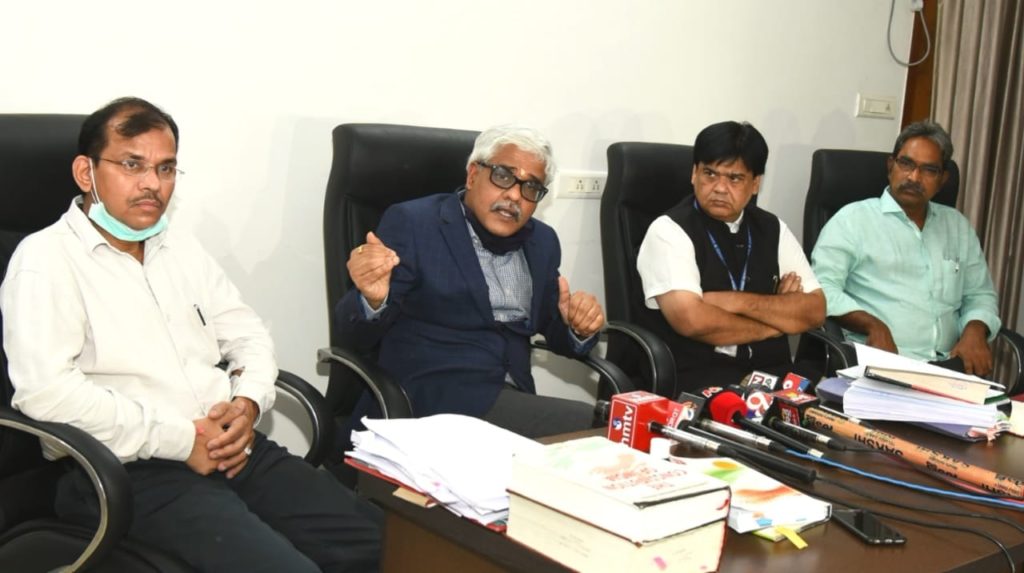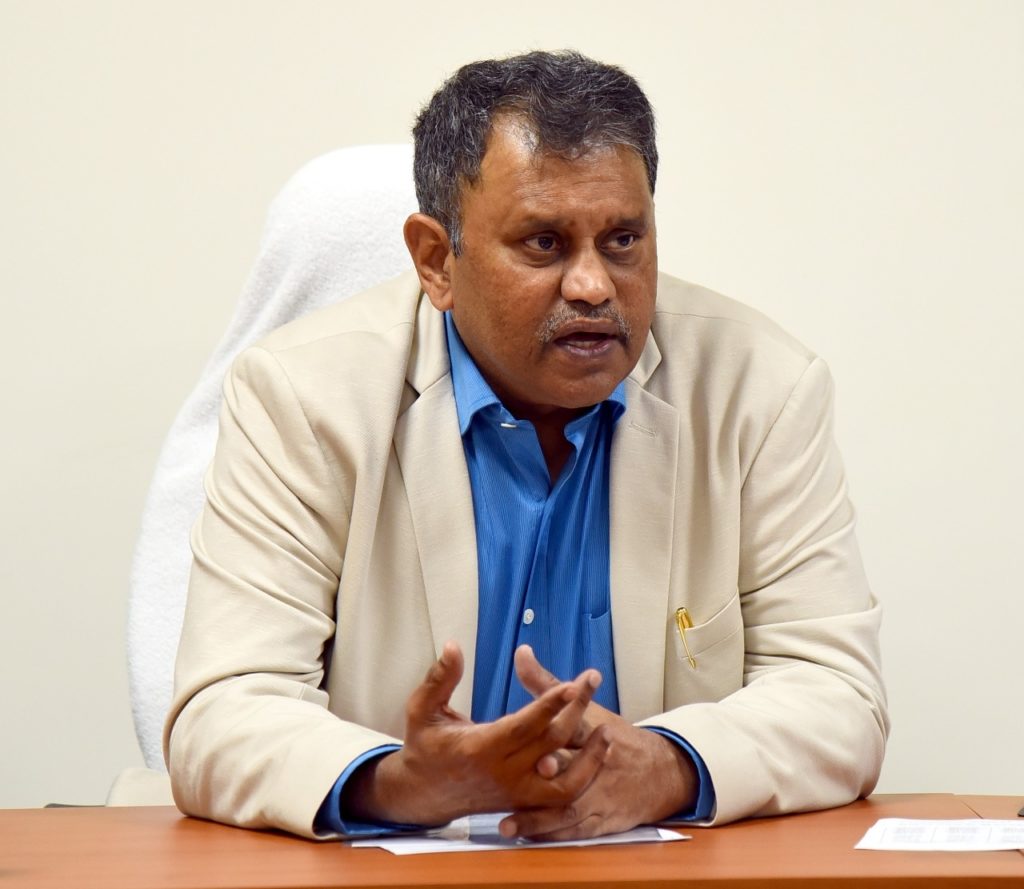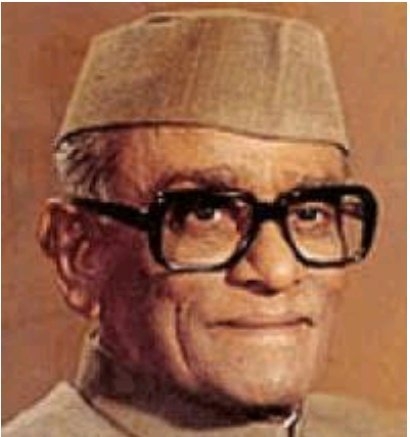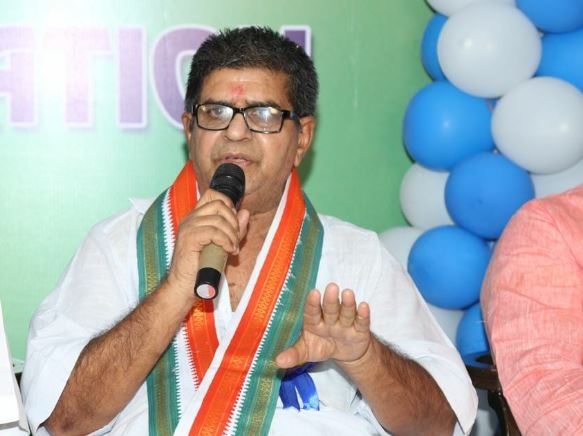(Kuradi Chandrasekhara Kalkura*)
In a major setback to Andhra Pradesh government, the High Court struck down (on 29th, May 2020) Panchayat Raj (Second Amendment) Ordinance (No.5 of 2020) and the consequential G.Os 617, 618 and 619 through which it cut short the term of the State Election Commissioner (SEC) from five to three years resulting in the expulsion of Nimmagadda Ramesh Kumar from that post.
A two-judge bench of the court comprising Chief Justice J.K. Maheswari and Justice M. Satyanarayana Murthy directed the government to reinstate Mr. Ramesh Kumar as SEC with immediate effect. This leads to the exit of Madras High Court retired judge V. Kanagaraj who was appointed as SEC soon after Mr. Ramesh Kumar was forced to demit office through the ordinance route.”

Of course, the Chief Minister YS Jaganmohan Reddy has been silent. He left it to his party-men to react in their own way. In fact, they are expressing hostility to the High Court in almost all the verdicts, numbering more than 60 which went against the Government.
The worst reaction came from the Advocate-General, Subramanyam Sriram. He forgets that he is a Constitutional Dignitary, not a mere Statutory functionary. He goes to the Press and makes his own comment, pointing out the supposed flaws in the Judgment and, this was unwarranted and unprecedented.
Judgments against the chief ministers or state governments are not new. But the conduct of the constitutional functionaries should not become susceptible to emotions or moods of political bosses when verdicts went against. Even the first chief minister of Andhra Pradesh Neelam Sanjeeva Reddy was not immune to adverse judgment. But, Colossus Reddy, who later became Lok Sabha Speaker, and President of India, left indelible footprints, by honoring the judgment when a Supreme Court verdict said he was politically motivated in ordering nationalization of certain bus routes in Kurnool district as the CM of Andhra Pradesh.
Let us draw a parallel between the present removal of Nimmagadda Rameshkumar case and the historic Kurnool District Bus Nationalisation case(Supreme Court of India) in 1964.

“The respondent corporation (Andhra Pradesh State Road Transportation Corporation) appointed an expert committee to go into the question as to the working of nationalized transport in the State (Andhra Pradesh). The Committee laid down the criteria for determining the order in which areas and routes had to be selected for nationalization and had drawn up a list of the remaining districts in which nationalization should be successively taken up. Accordingly, Nellore would have been the next district to be taken up and the turn of Kurnool district would have come up after nationalization of the routes in Nellore, Chittoor and Cuddapah districts were completed. This report was submitted to the Corporation in February 1961 and the Corporation accepted it and embodied the approval in its Administration Report dated March 24, 1962, which was published in April 1962. After the General Election in 1962, the Chief Minister (Neelam Sanjeeva Reddy) assumed office as Chief Minister on March 12, 1962. On April 19, 1962, he summoned a conference of the Corporation at which, he suggested that the nationalization of bus routes in the Kurnool district should be taken up first. By its resolution dated 4-5-1962, the Corporation made an alteration in the order of the districts, successively to be taken up for nationalization and selected the western half of the Kurnool as the area to be nationalized in the first instance. The appellants, motor transport operators whose routes were all in the western half of the Kurnool districts filed objections to the Schemes before the Transport Minister. The Transport Minister approved the schemes. Thereafter, the Corporation applied to the Regional Transport Authority for permits. The appellants then challenged the validity of the schemes in the High Court and in support of that allegations were made in the affidavit that the Chief Minister was motivated by bias and personal ill-will against the appellants, that he felt chagrined at the defeat of his party men and supporters and desiring to wreak his vengeance against the motor transport operators of the western parts of Kurnool, his political opponents, instructed the Corporation to change the order in which the districts should be taken up for nationalization and that the corporation gave effect to these instructions and directions. These allegations were not denied by the Chief Minister, nor was an affidavit filed by any person who could claim to know personally about the truth about these allegations.” (Source: Lawyersservices)

The bus operators, petitioners had lost their case in the High Court of A.P. and appealed to the Supreme Court of India.
“The argument urged by the appellants ( in the Supreme Court) on this part of the case was however tow-fold: (1) That it was not in fact the Corporation that formed the opinion indicated in Section 68-C but really the Chief Minister; (2) That the Chief Minister was motivated by extraneous considerations, namely, to strike at his political opponents who worked either against himself or his friends, supporters, and relations in the elections in February 1962 and had devised the schemes in order to cause the loss and compass their ruin.
https://trendingtelugunews.com/english/trending/ngt-takes-up-fresh-petition-on-lg-polymers-gas-leak/
A subsidiary point was also urged that the Transport Minister who heard the objections under s. 68-D(2)was also influenced by the Chief Minister. It was thus said that the Chief Minister dominated at every stage through which the schemes passed and that the schemes were really the result of his improper motive to ruin his political opponents. It was again not disputed by the respondent that if these steps were made out the schemes would be invalid and ought to be quashed.” (Supreme Court of India, C. S. Rowjee And Others vs Andhra Pradesh State Road … on 27 January, 1964:)
The Supreme Court observed: “The next question is as regards the inference to be drawn from these facts which in the absence of their denial have to be taken as true. It is here that we have felt the greatest uneasiness because if the facts which serve as the foundation for the plea of malafides are made out, the only question would be whether the inference of malafides on the part of the Chief Minister would be a reasonable one to draw. It is at this point that we are faced with the necessity of having to proceed without there being any effective answer to the propriety of drawing the inference which the appellants desire. There has been no denial by the Chief Minister, nor an affidavit by any person who claims or can claim to know personally about the truth about these allegations.
Think your friends would be interested? Share this story!
The Secretary to the Home Department-one Mr. S. A. Iyengar has filed a counter-affidavit in which the allegations we have set out earlier have been formally denied. He says,
“I have been expressly instructed and authorised by the Hon’ble the Chief Minister to state that the allegations suggesting personal animus and giving mandate are false and mischievous and have been deliberately made to create an atmosphere of sympathy”. The learned Advocate-General did not suggest that the Court could act upon this second-hand denial by the Chief Minister, as the statement by Sri S. A. lyengar is merely hearsay. We are, therefore, constrained to hold that the allegations that the Chief Minister was motivated by bias and personal ill-will against the appellants, stands unrebutted.” (Supreme Court of India, C. S. Rowjee And Others vs Andhra Pradesh State Road … on 27 January, 1964:)
Therefore the Court held: “In view of our conclusion that the schemes are vitiated by non-compliance with the requirements of s. 68-C and the Rules made thereunder, we hold that they have to be quashed as not warranted by law.
“The appeals are accordingly allowed and the appellants are granted a declaration that the schemes are invalid and cannot be enforced. The appellants would be entitled to their costs here and in the High Court-one hearing fee’. Appeals allowed.” (Source: https://www.lawyerservices.in/C-S-Rowjee-and-Others-Versus-Andhra-Pradesh-State-Road-Transport-Corporation-1964-01-27)

Within minutes after hearing the news of the Judgement, Sanjeeva Reddy, who was camping in Kurnool, called the Chief secretary over the Lightning Call and instructed him to prepare the Resignation Letter. Journalists accompanying the C.M in his tour were telling that the C.M. was not in a mood to enter into a conversation with the Chief Secretary. Probably he went straight to the Raj Bhavan. Next morning papers carried the news of the resignation. After the resignation, Sanjeeva Reddy said that the Advocate-General had not advised him to file an affidavit countering the allegation of ‘personal ill and bias.’ He rose to become the President of India. Sensing the failure of his duties the Advocate-General Duvvuri Narasaraju, owning moral responsibility resigned from the post. Though the next C.M. K.Brahmananda Reddy persuaded him to continue, he stuck to his guns and Burra Subrahmanyam, an equally eminent Lawyer succeeded Narasaraju. After the resignation, Narasaraju rose to eminence, attained all India fame, and at one stage considered for the post of Attorney General of India. The Government, without a murmur, had obeyed the Orders of the Supreme Court and paid compensation and costs as ordered. Within a year the buses were nationalized again.
Is there a comparison? In the A.P. State Election Commissioner’s case, the State has more than one option, within the framework of the Constitution. Being the topmost legal adviser to the State of A.P., the Advocate-General is bound to advise his client. After thoroughly examining the Judgement: 1. Ask the Govt to implement the Judgement. 2. File a petition either seeking review or clarification of the Judgement. 3. File an appeal before the Supreme Court. 4. File a petition before the High Court seeking the stay of the operation of the Judgment for a certain period or till he obtains appropriate orders from the Supreme Court. The Constitution is wide open. It is thrown to the winds and a back door method is selected.
The intention behind all this struggle is obvious; winning the ensuing Panchayat Elections/ The whispers in the political circles are as many as the number of registered voters. “Elections belong to the people. it is their decision. if they decide to turn their back on the fire and burn their behinds, then they will just have to sit on their blisters.” (Abraham Lincoln, Late President of the USA)
(Disclaimer: Opinions expressed in this publication are those of the author’s. They do not purport to reflect the opinions or views of the trendingtelugunews.com)
(*Chandrasekhara Kalkura was a migrant Udupi hotel worker, who rose to become president of Hotels’ Association of erstwhile Andhra Pradesh. He is an advocate and lives in Kurnool. Ph. 9440292979. email: kalkurakurnool@gmail.com